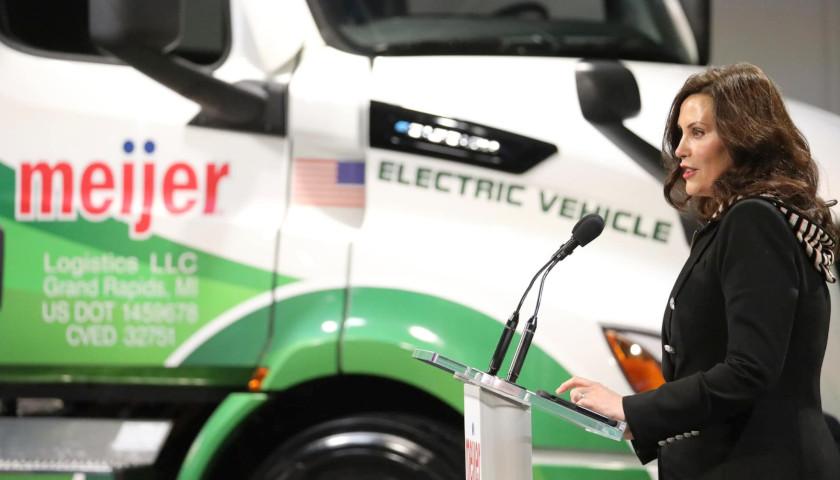by Scott McClallen
Gov. Gretchen Whitmer’s proposed $79 billion budget aims to allocate $10 million to transition the state’s automotive fleet to electric vehicles.
The governor budgeted $318 million on EV incentives: $150 million to help school districts buy 500 electric school buses; $65 million for EV charging stations; $48 million over two years for an EV sales and use tax exemption; and $45 million for local governments and businesses to transition their fleets to EVs.
The proposal would cut the state sales tax on the first $40,000 of an EV, which could save about $2,400 in taxes for each buyer, Whitmer said.
The Department of Technology, Management, and Budget manage 8,723 vehicles, all of which are leased, DTMB Director of Communications Caleb Buhs told The Center Square in an email.
“This is the portion of the fleet that the funding included in the governor’s budget recommendation would impact,” Buhs said.
The incentives aim to convince more Michiganders to switch to EVs. Only 25,181 EVs are registered statewide compared to 6.5 million vehicles with internal combustion engines.
The high cost of EVs is a major barrier to adoption, as well as a limited charging network and a driving range that drastically drops in extremely cold weather.
According to Kelley Blue Book, the average price of an electric car in September 2022 was $65,291. Meanwhile, the average price for a gas-powered vehicle was $48,100. Moreover, many used gas-powered cars cost between $5,000 and $15,000.
Michigan is building out its EV charging network, bolstered by $110 million in federal spending. A 2023 Anderson Economic Group report says Michigan has 200 public DC fast charging stations and 908 Level 2 charging stations. The report found that DC fast charging stations are concentrated in the lower half of the Lower Peninsula, mainly in Detroit, Ann Arbor, Lansing, Grand Rapids, and Kalamazoo.
In a statement, AEG Senior Consultant Cristina Benton noted: “Michigan’s network of gasoline stations took nearly a century to develop, and it likely includes more than 4,600 stations nowadays.”
Benton said that “only 16% of Michigan’s population lives within a 10-minute round trip drive of a DC fast charging station. In contrast, more than 87% of Michigan’s residents live within a 10-minute round trip of a gas station.”
The report recommended Michigan focus on DC fast charging stations, which can take 30 minutes to go from 20% to 80% charged.
The MI Healthy Climate Plan expects to support 2 million EVs on Michigan roads by 2030. A 2021 Council on Future Mobility and Electrification report says that 2 million EVs would require 10,000 Level 3 Chargers and 90,000 Level 2 chargers.
– – –
Scott McClallen is a staff writer covering Michigan and Minnesota for The Center Square. A graduate of Hillsdale College, his work has appeared on Forbes.com and FEE.org. Previously, he worked as a financial analyst at Pepsi.
Photo “Gretchen Whitmer” by Gretchen Whitmer.





